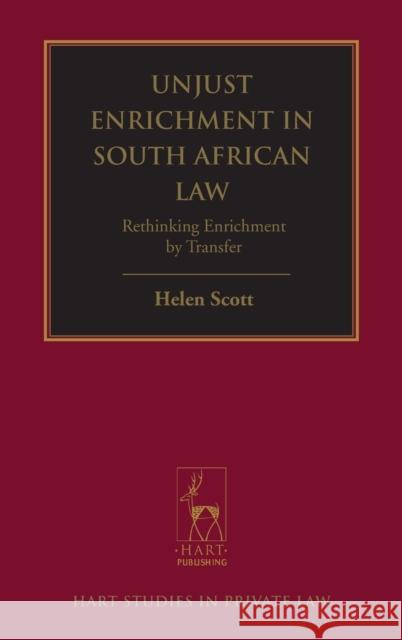Unjust Enrichment in South African Law: Rethinking Enrichment by Transfer » książka
Unjust Enrichment in South African Law: Rethinking Enrichment by Transfer
ISBN-13: 9781849462235 / Angielski / Twarda / 2013 / 250 str.
Conventional thinking teaches that the absence of liability - in particular, contractual invalidity - is itself a reason for the restitution of transfers in the South African law of unjustified enrichment. However, this book argues that while the absence of a relationship of indebtedness is a necessary condition for restitution in such cases, it is not a sufficient condition. The book takes as its focus those instances in which the invalidity thesis is strongest, namely those traditionally classified as instances of the condictio indebiti, the claim to recover undue transfers. It demonstrates that in all such instances, it is necessary for the plaintiff to show not only the absence of his liability to transfer, but also a specific reason for restitution, such as mistake, compulsion, or incapacity. Furthermore, it explores the reasons for the rise of unjust factors in South African law, attributing this development in part to the influence of the Roman Dutch restitutio in integrum, an extraordinary, equitable remedy that has historically operated independently of the established enrichment remedies of the civilian tradition and which even now remains imperfectly integrated into the substantive law of unjustified enrichment. Finally, the book defends in principled terms the mixed approach to enrichment by transfer (namely unjust factors and absence of legal ground) which appears to characterize modern South African law. It advocates the rationalization of the causes of action comprised within the condictio indebiti, many of which are subject to additional historically-determined requirements, in light of this mixed analysis. Written by an expert in the field, this innovative book will be a fascinating study for those interested in the field of restitution law. (Series: Hart Studies in Private Law - Vol. 7)











